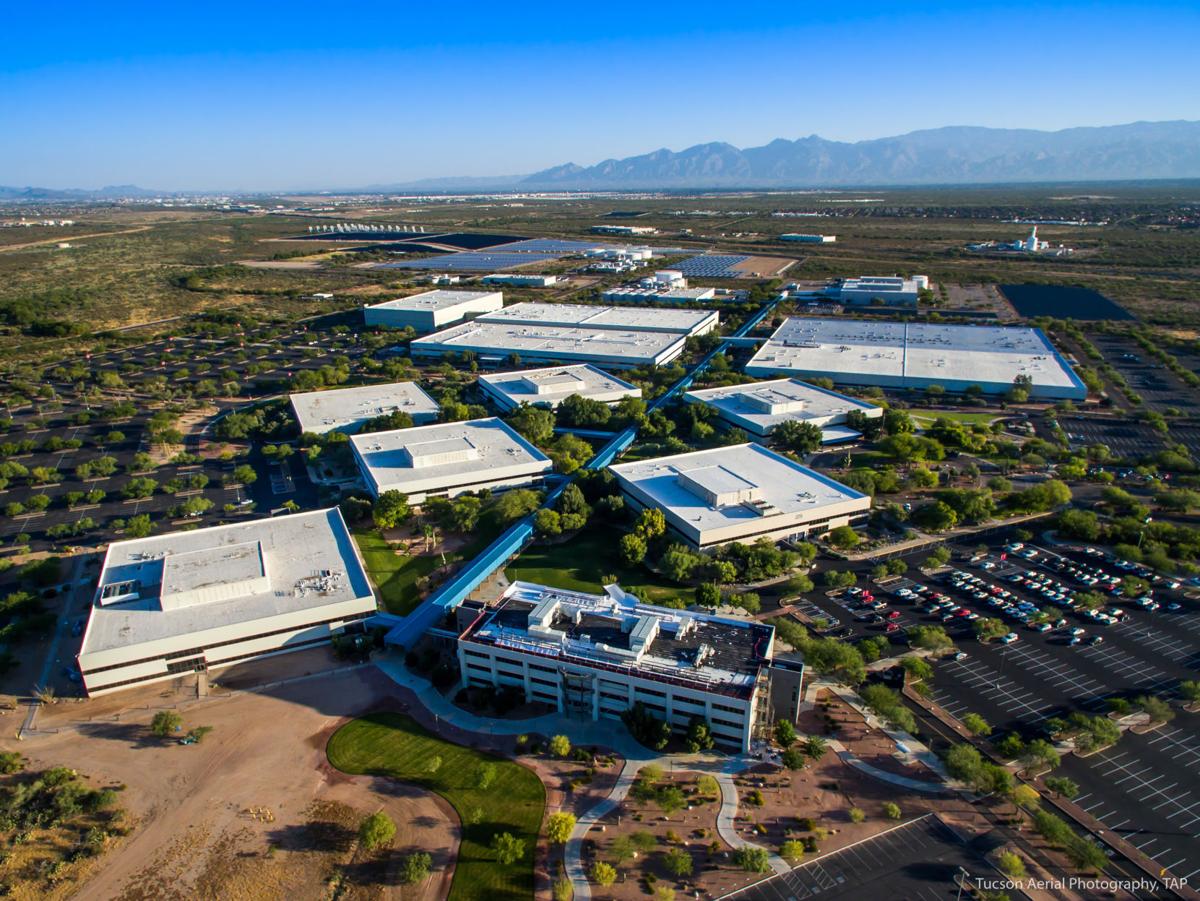The University of Arizona’s tech-oriented business incubator has remained active despite the challenges of COVID-19, recently adding two new companies including an intriguing, out-of-state “stealth” startup landed partly thanks to the pandemic.
The UA Center for Innovation last week announced that Techletics, a startup developing a mobile health app that helps people improve their posture, had joined its incubation program at the UA Tech Park on South Rita Road.
The UA incubator also recently announced that Nanomoneo, a biotech instrument startup backed by a Nevada venture-capital firm, had joined the program as one of more than 30 incubator clients.
In announcing Nanomoneo as a client company, the UA said only that the company is developing technology “that allow consumers to ‘see’ things that are not normally visible with the naked eye.”
But little else has been made public about what Nanomoneo is developing.
Nanomoneo president Juliann Talkington acknowledged the company, which is backed by Red Bear Venture of Incline Village, Nevada, is in “stealth” mode — an under-the-radar stance often used by very early stage companies to keep their technologies shielded until they are properly protected by patents, for example.
Talkington, a partner in Red Bear, said Nanomoneo will share more after it files for key patents, perhaps in six months or so, but until then she declined to discuss instrument technologies or specific products or markets, noting that the UA was privy to key details as part of its application process.
The UA has agreed to keep the information confidential, she added.
“Basically, what we’re working on are products that allow consumers and non-technical professionals to see things that are not normally visible to the naked eye,” she said. “Anything that somebody might want to see but can’t see, whether something in a solution or a solid.”
While Nanomoneo’s technology remains mostly a mystery for now, the company is well-funded by Red Bear, and is busy hiring, Talkington said.
The company plans to hire 14 people over the next five years, including research scientists, engineers and research support, with an estimated total economic impact of $17 million, according to the UA.
In Nanomoneo’s multi-state search for a launch site, Talkington said, Tucson stood out for the UACI and its offerings — including ample, and flexible wet and dry lab space and the ability to contract with the UA for the use of high-end research equipment.
She also gave high marks to Sun Corridor Inc., the Tucson-area economic development agency, and Tucson overall for its welcoming community.
“We evaluated a number of different places, and we were very impressed with Tucson, that’s why we’re here,” said Talkington, who has come to Tucson over the years to visit her parents. “We love Tucson, the people are super friendly here.”
Talkington said Nanomoneo also chose Tucson as part of a larger strategy by Red Bear to locate its startups in smaller, “second-tier” cities to avoid many of the disadvantages of big tech centers like San Francisco, New York, Seattle and Boston — including often stricter COVID-19 rules for labs and potentially disruptive street protests.
“There’s a lot of regulatory uncertainty in those markets and social unrest, both of which are hard to navigate for startups, she said. Talkington has managed several startups, including a medical-device company, for Red Bear Venture.
Now that Nanomoneao has found a supportive home, finding the talent it needs is a main concern for Talkington, The company is hiring Ph.D.-level research scientists and engineers with experience with sensors, programming, nanoparticles, and organic molecules.
The company has hired one research scientist and is in the process of hiring another, Talkington said.
To apply, send a resume and cover letter to amrtalk@nanomoneo.com, or use the company’s job posting on LinkedIn.
Nanomoneo also is looking to hire college and high school students as interns, Talkington said.
The company is taking internship applications from UA students at Handshake, an online platform that links college students to internships and jobs.
Meanwhile, Techletics is developing a patent-pending, mobile health application called MyPostureLife that uses the embedded sensors of a smartphone to track and improve posture — with no other additional device.
The founding members of Techletics are Nadav Gerson, CEO; Jan Halozan, chief technology officer; Mike Durham, chief strategy officer; and Nate McFall, chief marketing officer.
BIOSA SPONSORS OV INCUBATOR SPOT
In more news from UACI, the Biotechnology Industry Organization of Southern Arizona (BIOSA) will fund admission for one of the first members of its new biotech-focused incubator site in Oro Valley.
As winner of the “UACI Sponsored Launch Fueled by BIOSA” competition, one biotech startup company will receive a sponsored year’s admission at the UACI at Oro Valley.
Included with entrance into the incubator program and space at the new location, the startup will also be awarded a cash prize of $5,000. The total package value is $15,000 and funded by BIOSA.
Application submissions are open through Oct. 14. After a review and interview process, the winning team will be announced on Nov. 2.
For more information and to apply, visit tucne.ws/1ft4.
TECH EXPO GOES VIRTUAL
Like many other events, the Southern Arizona Tech + Business Expo is going online for its eighth annual edition on Oct. 7.
Sponsored by the Arizona Technology Council and the Arizona Commerce Authority, the daylong program will be held via VirBELA, an online collaboration platform.
The event will include a keynote speech by Roy Donelson of Raytheon Missiles & Defense and feature exhibitors in optics, biotech, mining, aviation, defense, robotics, aerospace and information technology.
The cost to attend is $20 for Tech Council members and $40 for non-members; preregistration and a software download is required. For more information or to register, go to tucne.ws/1ft5.





